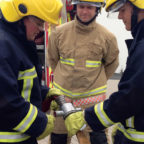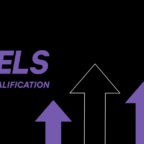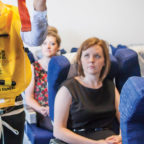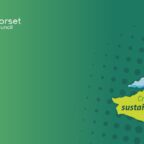 English Language
English Language
English Language A Level
In Short
Developing and nurturing a variety of assessment styles – including data analysis, discursive essays, directed writing, original writing and research-based investigative writing—you will develop your appreciation of the many forms and contexts of the English language.
You will gain an awareness of how language is used. This wide academic subject gives you the opportunity to write in a number of different styles and to explore both the spoken and written use of language in a social context. You will gain an insight into how language works right down to the level of individual sentences and word formations.
100% pass rate in A Level English Language in 2020 – 0.5% above National Average
Entry Requirements
At least 5 GCSEs at Grade 9-5 including English Language and Maths.
Course Content
Our AQA AS/A Level English Language specification offers opportunities for students to develop their subject expertise by exploring key language concepts and engaging with a range of texts and discourses. The specification explores the study of English language both as a medium of communication and as a topic in its own right, with an emphasis on the ability of students to pursue lines of enquiry, analyse texts produced by others and debate different views. The A level course also includes the opportunity to produce an investigation and original writing portfolio. The topics and titles of the AS ‘Language and the individual’ focuses on individual contexts for language, and ‘Language varieties’ considers larger-scale public discourses about variety. This specification draws academic insights from a range of fields within the study of English language/ linguistics, including sociolinguistics and discourse analysis. Our AS English Language specification offers a common core of analytical methods, topics and skills, which are then assessed in two exams in the summer and can be built on in the A-level in English Language.
Progression
Students who completed this course in have gained places on courses such as BA (Hons) Film & Screen Studies, BA (Hons) English and BA (Hons) English Language & Media at institutions such as Cardiff University, Bath Spa University and Brunel University.
Your Tutors - David Watts & Bernie Egan
David Watts
BA (Hons) English Studies
I have been teaching at Weymouth College for 9 years. As an English lecturer, I currently teach across Language and Literature at AS and A Level as well as having delivered the A Level Creative Writing course for 4 years, and have taught Functional Skills previously after a 3-year role in learner support. I also presently teach on the GCSE Language and Access to Higher Education curriculums. This wide range of experience helps me to engage with learners and ensure that the skills and content they learn will best help them express their own views on texts across all literary and linguistic eras and areas. In the past I have examined for the AQA A Level Literature specification at both AS and A Level, and I am currently an examiner for the Edexcel GCSE Language paper. This gives me an important insight into the requirements for learners’ assessment and how they can improve their skills and achieve their goals.
Bernie Egan
I have taught English Language, Literature, Creative Writing and Film Studies A Levels at Weymouth College for the last 8 years. I have also been an Associate examiner for AQA and Assistant Examiner for the AEB. I continue to update my subject knowledge, training and CPD with the different exam Boards – AQA, Pearson and EDUQAS (WJEC) thus I can guide students to the best exam skills and strategies for improving their performance in Coursework and Exams. Having specialised in Sixth Form teaching since I began my career in 1995, after having gained a Master of Arts degree in Literature, I have honed my expertise in A Level teaching and Learning. Our English related courses are stimulating; covering relevant and broad topics such as Socio- and Psycho- linguistics, and we select contemporary literary and film choices making the content relevant for our students.
Fees
If you are aged 16-18 as of 31 August on the year of enrolment – no course fee. If you are over 19 as of 31 August and enrolling on a full-time programme of study a tuition fee will be applicable in most cases. Bursary funds There are financial support arrangements for 16-18 year olds and hardship funds available for the over 19s. Please contact reception for details of costs and concessions on 01305 761100 or email enquiries@weymouth.ac.uk






























